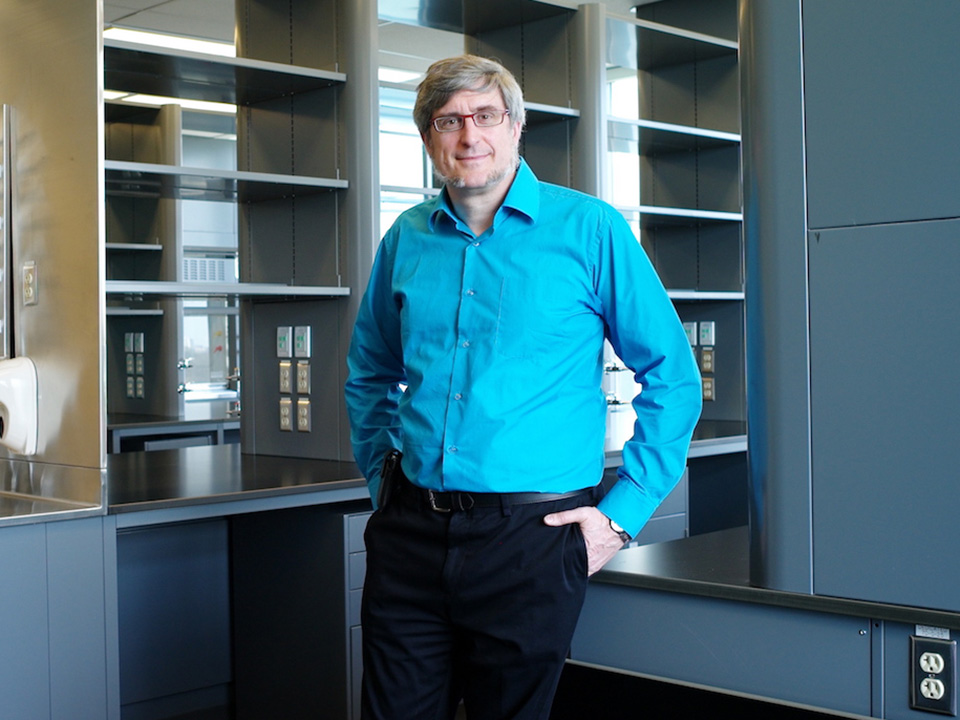Canada Research Chair awarded to head biologist
By Betty Zou
Dr. David Andrews, director of Biological Sciences at Sunnybrook Research Institute (SRI), has been awarded a Tier 1 Canada Research Chair (CRC) in Membrane Biogenesis.
Created by the federal government in 2000, the CRC program is part of a national strategy to boost Canada’s standing as a global leader in research and development. The path to this prestigious award is not an easy one—candidates are evaluated based on the quality and impact of their research first by their home institutions and then by a panel of three internationally renowned experts.
“This grant provides international recognition of the calibre of the research conducted by my group,” says Andrews, who will receive $1.4 million over seven years. “As a result of the recognition associated with the CRC award I am able to attract a higher calibre of trainees and visiting scientists to my laboratory.”
Andrews’ research focuses on membranes, the protective barrier that encapsulates cells and creates unique compartments within them, and their associated proteins. Membrane proteins are large molecules tethered to the cell surface. Sitting at the junction of two different environments, these proteins are an integral link in the communications network between the cell and outside world. Signals received by membrane proteins are relayed into the cell where their messages influence the cell’s decision to grow, remain inactive or die.
However, the chemical characteristics that enable these proteins to embed within membranes also make them difficult to study. To circumvent these challenges, Andrews, who is also a professor of biochemistry at the University of Toronto, is using imaging techniques to understand better how membrane proteins work with each other in healthy and diseased states.
He conducts this research in the high content cellular analysis lab (HiCCA) located within SRI’s Centre for Research in Image-Guided Therapeutics. The lab is unique in Canada and one of only four in the world with a FLIM Opera, a fully automated microscope capable of taking more than 100,000 images a day.
Using the Opera, Andrews is studying the Bcl-2 family of membrane proteins that regulates apoptosis, a type of cell death where badly damaged or unneeded cells commit suicide. When apoptosis goes awry, however, disease can arise. In some diseases, like degenerative diseases, there is too much apoptosis, whereas in others, like cancer, there is too little. Andrews’ research into how the Bcl-2 proteins work with one another and other cellular components to coordinate cell death has led to the discovery of potential new drug targets.
Andrews is pairing the immense processing capacity of the Opera with custom image analysis software to search for drug compounds that target the Bcl-2 membrane proteins. Equally important is figuring out how cells respond to these drugs, particularly in ways that might cause unwanted side effects. His lab is testing how cells and the Bcl-2 proteins within them behave under different conditions, for example when a drug is given alone or in combination with another drug. He is extending this technology to analyzing cells taken directly from patients with cancer to predict which therapy or therapies together will be most effective for a given patient, thereby doing away with the trial-and-error approach that is standard now.
Six other SRI scientists hold Tier 1 Canada Research Chairs.



